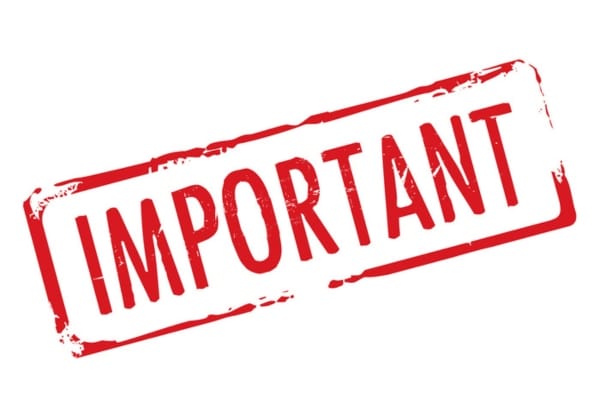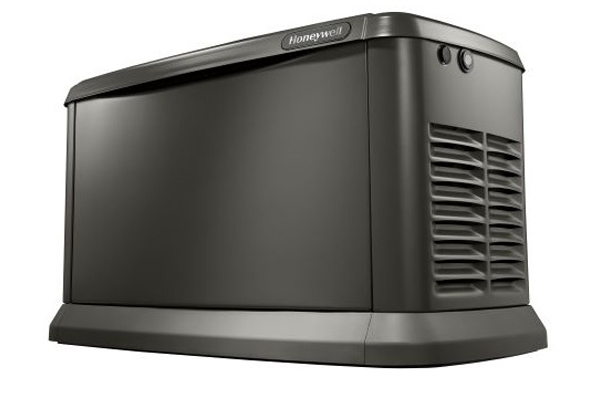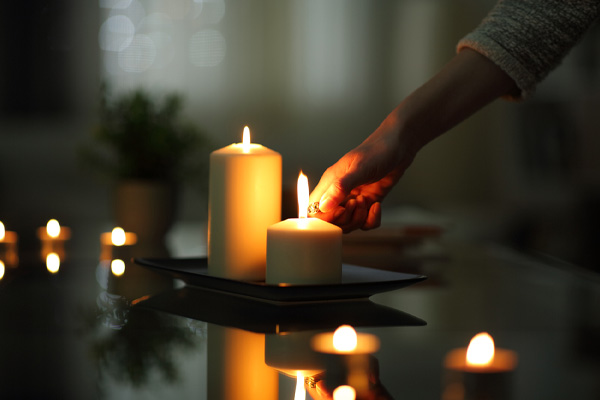Experiencing a power outage can majorly disrupt your daily activities. However, with a properly sized standby generator, your home can continue to be a haven of comfort and functionality. Knowing what size generator your home requires involves detailed planning and an understanding of your energy needs.
At Tevis Energy, we offer professional advice to guide homeowners through selecting and installing the perfect standby generator. This article details the essential steps on how to size a standby generator, equipping you with the knowledge to protect your home and maintain your lifestyle during power outages.
How To Size a Standby Generator: A Comprehensive Guide for Homeowners
Grasping how to choose the appropriate generator is crucial for keeping your home operational during crucial times. Let’s delve into the important factors to consider when determining the correct size for a standby generator.
The Importance of Correctly Sizing a Backup Generator

Ensuring your standby generator is accurately sized is critical for maintaining a safe and efficient power supply during outages. A generator that is too small will not be able to supply enough electricity, which can result in overloaded circuits, possible harm to delicate appliances, and repeated system shutdowns.
Conversely, a generator that is too large leads to excessive fuel usage, accelerated wear and tear, and higher maintenance expenses. By aligning the generator’s capacity with your home’s precise energy needs, you guarantee steady performance, minimized waste, and dependable functionality precisely when necessary.
Ensure You’re Never Without Power: Safeguard your home and maintain your lifestyle with a dependable whole-house generator customized to your requirements. Contact us now!
Determining Your Home’s Energy Requirements

To accurately size a standby generator, start by identifying the appliances and systems critical during a power outage. Focus on essentials like your HVAC system, refrigerator, lighting, sump pump, and necessary medical devices. These are vital for maintaining safety, comfort, and functionality throughout prolonged power interruptions.
Then, tally up the total wattage needed to operate these critical items. You must account for their running wattage (power needed for continuous operation) and starting wattage (initial power surge upon activation). For instance, refrigerators generally operate on 600-800 running watts but can demand up to 1,200 watts at startup. Likewise, a typical central air conditioner requires about 3,000 running watts, with up to 6,000 watts needed to start.
Looking for the Ideal Generator?: Let our specialists evaluate your energy requirements and suggest the best standby generator for your home. Contact us today!
Peak vs. Sustained Power Requirements
Understanding the difference between a generator’s capability to manage peak power (startup wattage) and sustained power (running wattage) is vital. The generator should handle the initial high demand of appliances seamlessly and maintain the continuous load effectively. Managing these power needs correctly ensures consistent operation and prevents undue stress on the generator.
Types of Whole-House Generators & Their Power Capacities

Selecting the appropriate generator is contingent on your home’s backup power needs.
- Whole-House Generators: These units supply comprehensive backup power to every system in your home, including HVAC, lighting, and appliances, making them suitable for larger homes or those needing complete coverage during power outages. Their capacities typically span from 22 kW to 48 kW or more, tailored to your specific energy requirements.
- Partial Home Generators: These generators deliver power to chosen circuits or crucial loads like refrigerators, sump pumps, and lights. They are a budget-friendly solution for homes with more modest backup power necessities. Based on the selected circuits, capacities generally vary from 8 kW to 20 kW.
Get Ready for the Unexpected: Secure your family’s safety and comfort during power outages with a reliable backup generator. Contact us today!
Factors to Consider When Sizing a Power Generator

Choosing the appropriate generator involves evaluating several aspects influencing its efficiency and suitability for your home.
Home Size and Layout
The dimensions and configuration of your home significantly dictate your power requirements. Larger residences need more robust generator capacities to provide sufficient coverage, particularly if the home spans multiple levels or includes separate buildings such as garages or workshops. It’s crucial for the generator to power all necessary circuits throughout these areas consistently.
Weather and Seasonal Factors
The climate in your area and the seasonal needs significantly influence your energy usage. Homes in colder climates may need to power heating systems, electric space heaters, and heated flooring, all of which consume a lot of electricity.
Conversely, residences in warmer regions often depend on air conditioning and dehumidifiers, which similarly elevate power requirements. A well-sized generator must accommodate these seasonal variations in energy demand.
Enhance Your Home’s Power Stability: With accurate generator sizing, smooth installation, and professional maintenance, we provide everything you need for dependable power. Contact us today!
Future Energy Needs
It’s crucial to consider future energy demands when choosing a generator. Integrating electric vehicle (EV) chargers, high-capacity appliances, or advanced smart home systems can substantially raise your energy requirements in the future. Opting for a generator with a bit more capacity than currently necessary ensures it remains effective, even with potential upgrades.
Choosing the Right Whole-House Generator Fuel Type and Assessing Availability

The type of fuel you select for your generator—natural gas, propane, or diesel—greatly affects its efficiency and sizing needs. Natural gas and propane are preferred for residential settings because of their cleaner burning and straightforward integration into home systems, though their availability may differ based on your location.
Diesel generators are known for their higher efficiency and robustness but necessitate more storage capacity and fuel management. Being informed about fuel choices helps ensure the generator fulfills your energy requirements and logistical considerations.
Enhance Your Assurance: Eliminate worries about unexpected outages with our expert generator solutions that ensure your home stays powered. Contact us today!
Essential Tools and Resources for Precise Backup Generator Sizing
Correctly sizing a standby generator demands meticulous planning, and several tools are available to help homeowners. Online generator sizing calculators can offer preliminary estimates by considering typical household appliances and systems.
However, these should not replace professional assessments. Depending exclusively on these calculators might lead to mistakes, like underestimating your power requirements or missing vital systems, potentially leading to subpar performance when you need it most.
Professional energy assessments, like those provided by Tevis Energy, guarantee accurate calculations customized to your home’s needs. Expert evaluations consider comprehensive energy consumption, anticipated future demands, and correct installation practices, delivering dependable advice on the optimal generator size for your residence.
Key Considerations for Standby Generator Installations
Correct installation of standby generators is crucial for ensuring both safety and effectiveness.
Space and Placement Considerations
The physical dimensions of the generator dictate its placement, necessitating sufficient space and clearance from walls, windows, and vents to promote safe operation and optimal airflow. It’s essential to mount generators on a flat, stable surface, often a concrete pad, positioned to reduce noise and exhaust effects on the home.
Local Codes and Regulatory Compliance
Adhering to local codes and regulations is critical for generator installation. You might need to secure permits, and the installation must conform to specific safety and zoning standards. Compliance with these regulations prevents legal complications and ensures the generator operates safely and reliably. Working with professionals well-versed in local requirements can streamline the process and guarantee that all aspects meet the necessary codes.
Seeking Dependable Backup Power?: Trust Tevis Energy to provide tailored generator solutions and exceptional service to ensure your home stays powered through any storm. Contact us today!
Why Opt for Tevis Energy for Whole-House Generator Installation?
Choosing Tevis Energy for your whole-house generator sizing and installation means relying on our expertise and dedication to customer satisfaction. With extensive experience, we deliver customized energy assessments to identify the perfect generator for your home’s specific needs.
Our full range of services encompasses professional installation, continuous maintenance plans, and expert support to guarantee your generator operates dependably. By selecting Tevis Energy, you secure peace of mind and confidence that your home will stay powered and protected in any outage situation.
Standby Generator Sizing: Common Questions

What Are the Risks of an Undersized Standby Generator for My Home?
An undersized generator will not cope with your home’s energy requirements, leading to overuse and possible malfunction or complete failure. This can result in repeated outages and harm to appliances connected to the system and may even reduce the generator’s lifespan. Correct sizing is crucial to provide an uninterrupted power supply and prevent system overload.
Is a Portable Generator a Suitable Alternative to a Whole-House Generator?
Portable generators are more affordable and can power essential appliances during an outage, but they don’t replace standby generators. Standby generators offer automatic activation, higher capacity, and the capability to power your entire home. They are also permanently installed and directly connected to your home’s fuel supply, which removes the hassle of manual operation and refueling.
How Important Is My Home’s Electrical Panel in Determining Generator Size?
The electrical panel in your home is pivotal in sizing a generator as it dictates which circuits and appliances will receive power during an outage. Ensuring your generator matches the panel’s load capacity through a professional evaluation is crucial. This alignment prevents compatibility problems and avoids power deficits.
End Power Outages for Good: Ensure your home is always ready for unexpected blackouts with a professionally installed standby generator. Contact us today!
Should Future Energy Needs Influence My Backup Generator Size?
Definitely! It’s crucial to consider potential future energy demands to prevent your generator from becoming inadequate. If you plan to install an electric vehicle charger, update your appliances, or expand your living space, opting for a generator with a bit more capacity than currently needed ensures it can accommodate these growing requirements, sparing you the expense of upgrading in the future.
What is the Expected Lifespan of a Standby Generator?
A well-maintained, high-quality standby generator can effectively serve for 15–20 years or longer. This longevity requires consistent maintenance, such as regular oil changes, thorough inspections, and swift resolution of any issues. Collaborating with a professional service provider like Tevis Energy ensures your generator stays dependable, efficient, and operational for each power outage.
Conclusion
Accurately sizing a standby generator is key to maintaining consistent power during outages. Each step, from pinpointing essential circuits and determining wattage needs to evaluate the home size, climate, and prospective energy requirements, is vital in choosing the appropriate generator. Proper sizing avoids inefficiencies, safeguards appliances, and guarantees smooth operation.
Don’t let the next power outage catch you unprepared. Contact Tevis Energy today for professional energy assessments, expert recommendations, and reliable installation services. We’re here to assist you in selecting and setting up the ideal standby generator to ensure your home remains powered and protected.
Your Reliable Generator Specialists: We handle everything from assessing your power requirements to providing continued support, offering comprehensive generator services you can depend on. Reach out to us today!
Call Tevis Energy for Professional Backup Generator Solutions
Tevis Energy delivers premier whole-house generator services across central Maryland and southern Pennsylvania. Our certified technicians are extensively trained to provide exceptional maintenance, repairs, and installations for standby generators.
Whether you need to fix a backup generator, set up a new one, or ensure your existing unit functions optimally, our skilled team is equipped to provide precise services tailored to your specific requirements. At Tevis Energy, we’re dedicated to offering competitively priced generator services readily available.
Choosing our services guarantees dependable support, interaction with courteous and expert staff, and transparent pricing. Your satisfaction is paramount to us, so all our services come with a comprehensive guarantee.
Contact us today to schedule your service appointment and get a free in-home consultation. Call now!
You can click here to contact us now or call us at (410) 876-6800 to find out more! Click the link to view our service area.

Related Articles:
